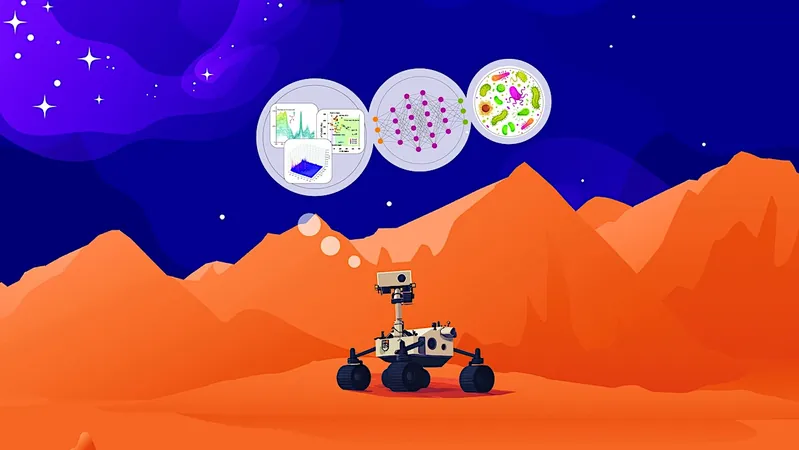
Revolutionizing the Search for Extraterrestrial Life: Carnegie Scientists Lead Groundbreaking A.I. Project
2025-08-27
Author: Jia
A $5 Million Leap Towards Discovering Life Beyond Earth
In an exciting development for astrobiology, a collaborative team spearheaded by Michael L. Wong from Carnegie Science and Caleb Scharf from NASA Ames Research Center has been awarded a prestigious $5 million NASA grant. This funding, part of the Interdisciplinary Consortia for Astrobiology Research (ICAR), aims to harness cutting-edge A.I. tools in the relentless quest for signs of life on distant planets.
Uniting Experts to Tackle Life’s Greatest Mystery
This ambitious project unites specialists across chemistry, geoscience, machine learning, and planetary science—forming a powerhouse of expertise to tackle one of the key challenges in astrobiology: accurately differentiating between life and non-life in cosmic data.
Creating a Treasure Trove of Data
Central to this endeavor is an extensive, meticulously curated dataset. Carnegie researchers—Wong, Anirudh Prabhu, Robert Hazen, and George Cody—are set to construct detailed profiles for at least 1,000 samples, spanning everything from meteorites to ancient fossils and living organisms. By employing advanced analytical techniques, they aim to unravel the intricate molecular and chemical signatures within this diverse collection.
Harnessing A.I. to Uncover Hidden Patterns
Wong emphasizes that A.I. will be pivotal in identifying patterns within these massive multidimensional datasets—insights that human researchers could not uncover in a lifetime. "It’s a powerful tool for detecting subtle biosignatures that might otherwise blend into the noise of data," says Wong. This technology has the potential to illuminate fundamental distinctions between living organisms and inert matter.
Building a National-Scale Collaboration
The project's reach extends across renowned institutions, including NASA Ames Research Center, Johns Hopkins University, Rutgers University, Caltech, Howard University, Purdue University, and NASA’s Goddard Space Flight Center. Their combined efforts will transform this initiative into a national-scale data-generation engine, setting the stage for profound discoveries in our understanding of life in the universe.
Paving the Way for Future Exploration
Beyond merely developing A.I. tools, the team plans to translate their findings into actionable recommendations for the most effective scientific instruments for upcoming missions. This ensures that future expeditions to extraterrestrial locales are equipped with the best tools to uncover signs of life.
The Future of Astrobiology is Here
Scharf notes the crucial nature of this work, particularly for NASA's missions to Mars and icy moons in our Solar System, where intelligent machines will be essential for exploration. As data collection progresses, the team aims to establish an open-source sample library and data repository, fostering accessibility for future research and encouraging collaboration within the planetary science community.
A New Era Awaits
"We’re on the brink of a new era in astrobiology," Wong remarks. "With unprecedented data and computing power at our disposal, it’s time to unify these resources and boldly confront the ultimate question: Are we alone in the universe?"





 Brasil (PT)
Brasil (PT)
 Canada (EN)
Canada (EN)
 Chile (ES)
Chile (ES)
 Česko (CS)
Česko (CS)
 대한민국 (KO)
대한민국 (KO)
 España (ES)
España (ES)
 France (FR)
France (FR)
 Hong Kong (EN)
Hong Kong (EN)
 Italia (IT)
Italia (IT)
 日本 (JA)
日本 (JA)
 Magyarország (HU)
Magyarország (HU)
 Norge (NO)
Norge (NO)
 Polska (PL)
Polska (PL)
 Schweiz (DE)
Schweiz (DE)
 Singapore (EN)
Singapore (EN)
 Sverige (SV)
Sverige (SV)
 Suomi (FI)
Suomi (FI)
 Türkiye (TR)
Türkiye (TR)
 الإمارات العربية المتحدة (AR)
الإمارات العربية المتحدة (AR)